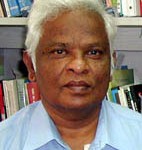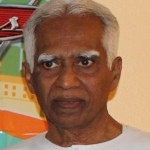–

Basil Fernando
Within just a few days of the announcement of the new ministry, the Ministry of Law and Order, a rather unusual level of interest has emerged, judging by the many articles that have appeared in response to the government’s move. Though such quick responses are unusual, they are not surprising. If anyone is asked to point out some of the most pressing issues of public importance, the issue of the civilian police would emerge, without doubt. In fact, for several years, this issue has been addressed on an almost daily basis in all media, in all languages.
Therefore, it is worth trying to trace, by way of a brief history, how the issue of civilian policing acquired such importance.
Since the British established a policing system in Sri Lanka, some 147 years back, the idea of establishing a civilian policing system, which would be in charge of the law enforcement in Sri Lanka, gradually became quite a consolidated part of the building of the state in Sri Lanka. The critical point at which the idea of civilian policing came to be challenged is in the aftermath of the 1971 JVP ‘insurrection’. Suddenly, the police, together with the military, was pushed into the executing the idea of ‘exterminating insurgents’. The idea of extermination was in direct contradiction with the ideas of the administration of justice and enforcement of law in the normal sense, anywhere in the world.
Looking back, it is easy to identify the elements of such extermination, as compared with normal law enforcement functions.
Those elements are:
Arresting persons on a large scale, often based on very flimsy information, which the police were not in a position to assess for veracity;
The permitted use of extraordinary forms of torture with the view to discover information about insurgency and those who are involved in it to a greater or lesser degree;
‘Suspension’ of the police departmental orders in dealing with arrest, detention and the welfare of detainees;
Extraordinary forms of permitted secrecy and withholding of information, even from the next of kin of detainees;
‘Suspension’ of the requirement to observe the legal procedures of reporting arrests and detentions to court, as required by the Criminal Procedure Code of Sri Lanka;
‘Suspension’ of the rule relating to the production of suspects before magistrates within 24 hours;
‘Suspension’ of post-mortems in cases of deaths relating to insurgents;
Finally, large-scale killings of persons after arrest and disposal of their bodies.
These aspects of deviation from the normal legal procedure have been well researched and documented, and a considerable body of literature is available. The purpose of reiterating these items here is merely to trace when the beginning of a drastic departure from civilian policing took place in Sri Lanka.
Subsequently, there were other insurgencies, both in the south as well as in the north and east, which continued up to May 2009, during which period these same deviations continued and intensified. As for the south, the commissions appointed for investigation into involuntary disappearances have left a rather lengthy reports of how these practices occurred. Regarding the north and east, there are many reports made by independent observers, as well as, to some extent, recorded in court cases and numerous reports from human rights groups, including those from various UN agencies. However, a thorough, official record is yet to come, as no official investigations have taken place. Such an official recording would have enabled the survivors from such experiences to record their grievances before a state agency.
These deviations was legitimized by Emergecy Regulations and Anti- terrorism laws.
Normative Changes
Besides the deviation from normal practices mentioned above, there was also a significant change in the law itself, by way of constitutional changes. The 1978 Constitution brought all public institutions under the control of the Executive President and thus the structure of the institutions underwent a fundamental change in their normative framework. Again, this aspect is also well-reflected in the massive amount of literature that is available on the constitutional changes. By 2001, the impact of this change in the normative framework on the actual functioning of the police and other institutions was drastically felt. The disturbing impact of institutional failures led to a parliamentary debate and the passing of the 17th Amendment with near unanimity, with the objective of taking some partial corrective measures. There was a short period of experimentation with the 17th Amendment, which did not change the normative framework of the 1978 constitution but attempted to provide some relief in relation to the damage caused to the institutions. As far as the police were concerned, the National Police Commission brought about some significant improvements, though, due to normative problems, it was not possible to correct the situation completely. However, even these limited improvements collided with the normative framework of the 1978 constitution and the new political regime, which was thoroughly interested in restoring the 1978 constitutional framework. Thus, the 18th Amendment was adopted by the Rajapaksha regime, which went beyond mere re-affirmation of the normative framework of the 1978 constitution, but in fact created a situation in which it is almost impossible to bring about change.
In short, what now exists as the policing system is a product of the deviations brought about in practice since 1971, and normatively brought about by the 1978 constitution, reaffirmed and re-strengthened by the 18th Amendment to the constitution.
When the Lessons Learnt and Reconciliation Commission (LLRC) made its recommendations relating to the problems of the rule of law in Sri Lanka and mentioned the need of delinking the police department from the Ministry of Defence, the aim of that recommendation was the reestablishment of civilian policing in the original sense – meaning before the practical transformations since 1971, and the normative changes since the 1978 constitution.
The present move to establish a new ministry, a “Law and Order” Ministry, and the place of the policing system under this new ministry, is announced as a step towards implementing the LLRC recommendation. However, the mere change of ministry will not create a civilian policing system that has the power and capacity to enforce law within the framework of the rule of law as it existed originally, unless the deviation – practically caused since 1971 and normatively caused by the 1978 constitution, reinforced by the 18th Amendment – is deliberately removed.
Such a change requires a change of design, an expression of intent in terms of principles by way of changing the normative framework of the 1978 constitution, as well as the practical steps to overcome the practices that have gotten entrenched since the aftermath of the 1971 insurgency.
The public has only one of two choices; Either to enter into this debate on civilian policing and achieve a decisive change or live in this same miserable situation without state protection, expecting the things to become even worse.




